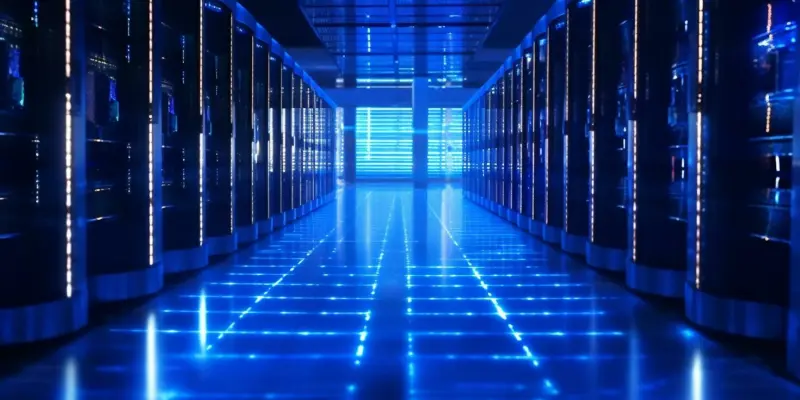In a significant development for South Dakota’s technological and economic landscape, Applied Digital has unveiled plans to invest up to $16 billion in a state-of-the-art data center in Deuel County. This ambitious project, which positions the state as a strategic location in the data center sector, is expected to offer 430 megawatts of IT capacity and create close to 200 high-paying job opportunities. The selection of Deuel County is not arbitrary; the colder climate provides a natural cooling advantage, resulting in reduced energy and water consumption when compared to traditional data center hubs in warmer cities like Phoenix and Dallas. This aligns with a growing industry trend of situating data centers in cooler climates to optimize operational efficiency and sustainability. The cold climate is especially advantageous for demanding IT applications, such as those involving AI hardware and high-performance computing (HPC). As the center begins operating, the economic ripple effect is anticipated to stimulate job markets and technological advancements within the region.
Strategic Location and Infrastructure Development
The development’s initial phase involves constructing two vast buildings, each covering 907,000 square feet. The substantial infrastructure underscores Applied Digital’s commitment to scaling operations and enhancing the state’s fiber optic services, a critical component for facilitating swift data transmission. Attention to environmental factors, such as minimizing noise and water impacts, is a testament to Applied Digital’s dedication to sustainable practices. However, the planning process is nuanced by local challenges; notably, Deuel County lacks zoning laws, which could delay project timelines. Beyond local hurdles, unresolved issues related to state-level sales and property taxes pose additional complications, highlighting the need for collaborative efforts between the company and governmental bodies. To surmount these challenges, Applied Digital is engaging with local authorities to ensure a conducive environment for the data center’s operation, balancing regulatory compliance with infrastructural enhancements. Decisions related to zoning are expected to take between six to nine months, followed by an 18 to 24-month construction timeline.
Broader Industry Trends and Legislative Context
Applied Digital’s strategic move is emblematic of a broader shift within the industry towards leveraging colder climates for cost-effective data center operations. With successful projects in North Dakota and planned expansions in Iowa, Applied Digital demonstrates the benefits of these cooler locales. This approach not only decreases operational costs but also aligns with broader environmental initiatives by lowering the carbon footprint typically associated with data centers. Meanwhile, South Dakota is navigating its legislative framework to provide incentives for tech infrastructure development. A prior legislative effort to promote such investments was not successful, having narrowly missed approval, but it underscores an ongoing dialogue about supporting data center growth. These legislative decisions are critical as they have the potential to shape South Dakota’s ability to attract further tech investments. As the industry pivots from hosting cryptocurrency mining hardware to focusing more on HPC and AI, Applied Digital’s expansion strategy reflects evolving market demands and the necessity for adaptable infrastructure.
Future Implications and Market Adaptation
Applied Digital’s announcement of its intention to invest up to $16 billion in a cutting-edge data center in Deuel County marks a pivotal moment for South Dakota’s tech and economic sectors. This project is set to establish the state as a major player in the data center industry, offering an impressive 430 megawatts of IT capacity and generating nearly 200 well-paying positions. Deuel County was chosen strategically due to its colder climate, which naturally aids in cooling, thus reducing energy and water use compared to traditional hubs like Phoenix and Dallas. This decision reflects the industry’s shift toward cooler climates to boost operational efficiency and sustainability. The cold conditions are especially beneficial for intensive IT operations, including AI hardware and high-performance computing (HPC). As operations commence, the data center is anticipated to bring about economic benefits, stimulating job growth and spurring technological progress in the area.

